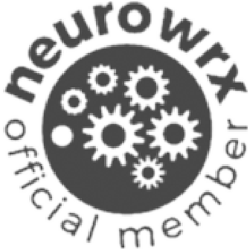In Italy, 1633, Galileo Galilei was ordered to turn himself in to religious authorities. He was to be put on trial for holding the heretical belief that the Earth revolves around the sun. Throughout the trial, he was imprisoned and secluded — standard protocol for someone in his situation at that time.
Scripture held that the sun moved around the Earth. This could not be disputed, despite the fact that scientists had known for centuries that the Earth was not the center of the universe.
The end result: Galileo agreed not to teach the “heresy” anymore and he spent the rest of his life under house arrest. It took over 300 years for the Church to admit their mistake and clear Galileo’s name.
I am not sharing this to make a statement about religion. I am sharing this because I see common threads between Galileo and neurodivergence in terms of trying to be yourself in a closed-minded world. To be uniquely wired-up or neurodivergent is to trailblaze for yourself. When you trailblaze for yourself, you defy convention. When you defy convention, sometimes people and society at large present antagonistic forces that don’t appreciate what you bring and need; that sometimes try to bring you down, like crabs in a barrel. Devaluation and marginalization are key tactics to those ends.
I am sharing Galileo’s story because he was persecuted for thinking ahead of his time and for thinking differently than the status quo. This is something that — in some form and to some degree — I believe neurodivergent people deal with constantly. Often even more so if you are female and/or a person of color.
The overarching dynamics are similar. Someone who doesn’t understand you decided things were going to be a certain way, decided how people should think. Add to that that they’re incorrect to begin with. However, you see things differently, possibly even more accurately, and for that you are labeled as “disordered”. Galileo was correct yet labeled as “heretical”. Simply stated, it is a form of scapegoating.
Sometimes I wonder what Galileo’s self-esteem was like as he remained isolated in prison, and when he was ordered to stop teaching facts, while under house arrest for the remainder of his natural life. If being judged as “heretical” for his scientifically backed point of view made him question himself. If he felt angry and wronged — these are not unfamiliar feelings on the path of neurodivergence.
One definition of self-esteem is that it is how we value and perceive ourselves. To some extent, how we perceive ourselves is impacted by how others see us too.
Imagine a world where truth and high sensitivity are the most valued traits, along with kindness, consent, and emotional intelligence. Where fairness, not money, is what everyone wants. Where eye contact is discouraged — you get shamed for it and told “Why can’t you be like neurodivergent people and look away?”. Every space is designed for sensory wellness. Law enforcement issues tickets for being too loud and people getting into your personal space. Homes are designed to minimize if not completely remove communal noise. Schools want to know how you think, what you see. They work with you and nourish individuality, instead of trying to mold everyone’s minds through an assembly line-like process that has little variation. Where neurotypical individuals are given the diagnosis of “neurotypical disorder” and need to request reasonable accommodations, while neurodivergent is “normal” and the benchmark for optimal function. Where it is a given, not an exception, that work environments and procedures seamlessly integrate with neurodivergent needs. Imagine how neurodivergent individuals would feel about themselves in that world. Then take the inverse of that and you get a sense of how this world can negatively affect neurodivergent individuals as it is now.
Is it any wonder then that neurodivergent individuals frequently struggle with self-esteem and depression? We are given the repeated, demoralizing message that who and how you are is wrong, and needs to be fixed. That you are an exception or a burden who may or may not be accommodated, as long as you don’t use too many resources. That the way you are isn’t aspirational.
But I disagree. I believe the neurotypical world needs a lot of help. I think we’re the future. I believe we operate from a different range of frequencies, like different guitar strings; ones that I prefer.
Sometimes, in difficult moments, I invoke the spirits of trailblazers before us, like Galileo, Alan Turing, Nadia Murad, Rosa Parks, and countless others who were oppressed for being who they are. I remember that they are and were simply ahead of their time. I remember that this is a problem of certain powers that be, not a problem of me. That I am not how others treat or mistreat me. That I decide my worth, not the insightless emissaries of a broken world, who are too afraid to individuate. I remember inspiring individuals such as Greta Thunberg and David Tammet. I remember Ross Caliguiri’s quote, “If you feel like you don’t fit into the world you inherited it is because you were born to help create a new one.” I remember to speak up. And I remember — sometimes on repeat, like a mantra — that I am strong, valuable, and needed. You are too.




















